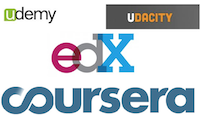
From Telecourses to Online Courses: A Story of Redesign
This case deals with the redesign of a standard telecourse – printed material, professional studio video recordings and phone tutoring – into an online course. The redesign involved an adjunct professor in the Humanities having some experience in distance education but little with learning technologies. It was a two-year project including the grant application process. […]















